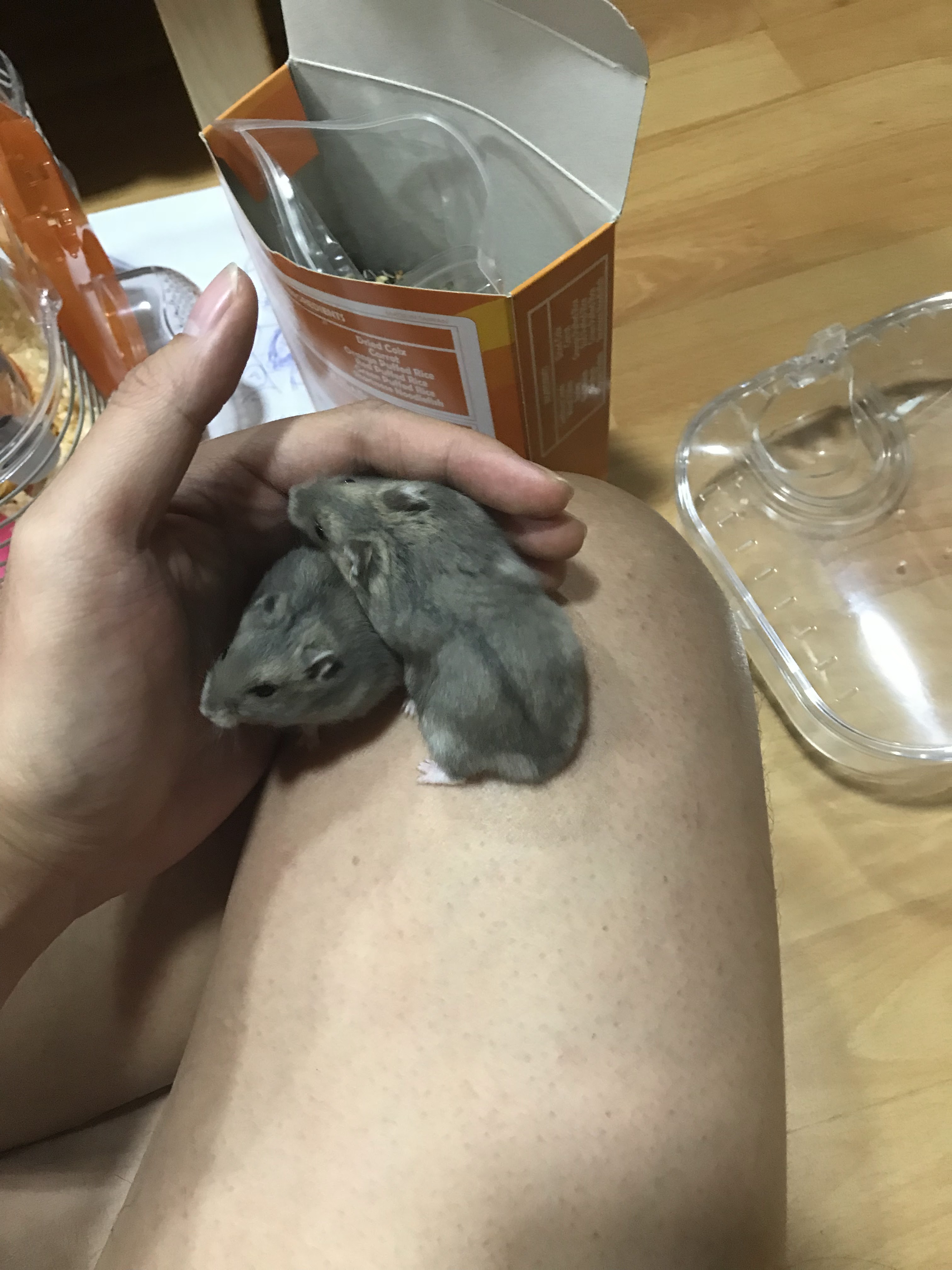Follow us on Telegram for the latest updates: https://t.me/mothershipsg
Amid the very public debacle involving former husband-and-wife pair Sylvia Chan and Ryan Tan from Night Owl Cinematics, one character's point of view has been conspicuously missing from the conversation:
Why do couples get pets and what happens to a pet when a couple splits?
It's a simple question, one that we probably don't spend enough time thinking about.
Why do couples get a pet together?
Asking around, the most common answer I received was that pets are, in some ways, a replacement for kids.
It makes sense. The life of an average Singapore couple follows a certain trajectory: Parties get attached, they date, they meet the parents, they marry/apply for BTO, and then along comes the kid(s).
But not everyone is onboard with the idea of raising a child.
For one, it is notoriously expensive, to the tune of S$200,000. And more importantly, like a dodgy crypto investment, there's no guarantee that pumping in that many zeroes will get you your money's worth in the long run.
Pets are different though. Although, like kids, pets eat a lot, poop a lot, and generally have no other use aside from looking cute, they — especially dogs — are known to be loyal to a fault.
And for a fraction of the price.
"I think [having a pet] is a cheaper alternative to having kids, like it makes the house less boring," said A who has been with his girlfriend for slightly over five years.
They don't live together right now and so no, they don't own a pet. But co-owning a pet is definitely on the agenda once they move in together. A wants to get a cat and a dog ("I want them to get along well like best friends."). His girlfriend, on the other hand, is more pragmatic — she wants to start with a couple of gerbils.
In A's mind, taking care of a pet is also a trial run of sorts, to prepare a couple who eventually wants to have a child.
"I think for some it's a good prior experience to have before actually having a kid. Like, learning to take care of this living being for a few decades together is not easy man."
I'm pretty sure most parents (especially those freshly scarred from the trauma of acclimatising to a newborn) will object vehemently to the idea that caring for animals is anywhere near raising a kid.
But still, getting a pet together is a fairly big commitment, perhaps not as big as having a child, but still one that says, "I trust that you are going to stick around, and so I am comfortable taking on this responsibility of caring for another sentient being with you."
Small animal, big commitment
Perhaps that's why most of the couples I spoke to preferred smaller, more manageable pets. Like hamsters. Or gerbils.
D adopted two hamsters when he moved in with his then-girlfriend, and unlike A, his reasons were less kid-centric and more pragmatic — some might even find it a sweet gesture:
"I was travelling a lot, and my [girlfriend at the time] was kind of lonely at home while I was away. Just nice, at that time my colleague's hamster produced a lot of hamster babies. So I decided to adopt two hamsters to accompany her."
For D, there was also something special about owning a pet with a parter. "It feels like we're owning something that belongs to us alone," he mused.
 D adopted two hamsters to keep his girlfriend company while he was travelling for work. When they split up, neither of them wanted to keep the hamsters. Image courtesy of D.
D adopted two hamsters to keep his girlfriend company while he was travelling for work. When they split up, neither of them wanted to keep the hamsters. Image courtesy of D.
Both A and D are clear that being a pet owner — especially between couples — entails exercising responsibility (after all, you are caring for a living creature), but their views on pets are quite utilitarian. While there's nothing wrong with that, it unfortunately means when a couple splits up, and their pet loses its function, it can be tossed aside easily.
As far back as 2008, Action for Singapore Dogs (ASD), a non-profit organisation which rescues stray and abandoned dogs, said that many dogs end up abandoned when young couples move on to start a family or break up.
The organisation's President told AsiaOne:
"Couples will fight over the house, but no one wants the dog. One was even tossed out from a moving car."
If a dog can be thrown away so easily, what more smaller pets like hamsters?
When D and his girlfriend parted ways, neither wanted the hamsters — he didn't think he had the time to properly care for the critters while she just didn't want to see them any more — and both argued until they were "too tired to fight".
In the end, D caved and took the hamsters in ("She didn't want to take them, then I had to continue caring for them lor."), caring for them until they passed away last year.
Serious Pet Owners with Serious Pet Convictions
Not every couple struggles with the decision to care for a pet in the event of a split.
When H got married, she brought along her Maltese-Poodle hybrid (or Maltipoo, as they're commonly known) to live with her and her husband.
Over the years, the couple has grown to love the dog — to the point that H's husband calls it his "brother".
"This is a rather strange relationship," I said.
"I know right," laughed H. "Sometimes I feel like he loves the dog way more than I love it."
And so H knows that if she and her husband were to split, he would fight to keep the dog.
"I find that endearing lah, but of course I won't let him."
H is what I would consider to be Serious Pet Owner — someone who sees pets as more than just functional add-ons to a relationship. And of course, she has firm opinions about what happens to a pet when a couple splits.
To H, the availability of finances, resources, and time are important factors to consider, as is accommodation:
"Who is going to keep the house? If both are moving out, will they be staying with someone else? How will this affect the pet? A new environment can be stressful for the pet."
And no, it is "unacceptable" for a couple to give away a pet, according to H ("It's like giving away your family member leh. How can dis b allow.").
 Is it OK to give up a pet when a couple splits? Photo by Andrew Wise on Unsplash.
Is it OK to give up a pet when a couple splits? Photo by Andrew Wise on Unsplash.
M, another Serious Pet Owner who owns a Japanese Spitz, has choice words for couples who give away their pets when they separate:
"The idea that we can give away our pets easily is a selfish and I would say even inhumane one."
However, she also admits that it can be difficult for a couple to decide who gets to keep their pet.
She opined that ideally, the pet should stay with the person who walks it, feeds it, bathes it — in essence, someone who is most familiar with the pet's routine.
"But the person who takes care of it the most might not have the financial resources to do so (after the split). So it might be better to go with person with money but then it's not good for the pet also because it receives less attention."
Can't be blasé about the considerations
The last person I spoke to — K — has been with his girlfriend for slightly over two years now and hopes to get a dog once they get married.
For him, getting a pet is a big decision — something that he feels is easier to make as a married couple
Marriage, to him, indicates a certain level of commitment between a couple, which means they might be more invested in staying together and keeping the pet:
"If an unmarried couple decides to get a pet together, each person in the couple must be prepared to be an individual pet owner. Can't be blasé about the considerations just because its a 'pet'. After all, it's going to be a living sentient thing that will depend on you to live."
Clearly, there are different reasons why a couple — married or unmarried — might get a pet. But before you do, it's probably best to give it some thought and prepare for the possibility of having an animal depend on you, even without your happily ever after.
Top image via
If you like what you read, follow us on Facebook, Instagram, Twitter and Telegram to get the latest updates.
